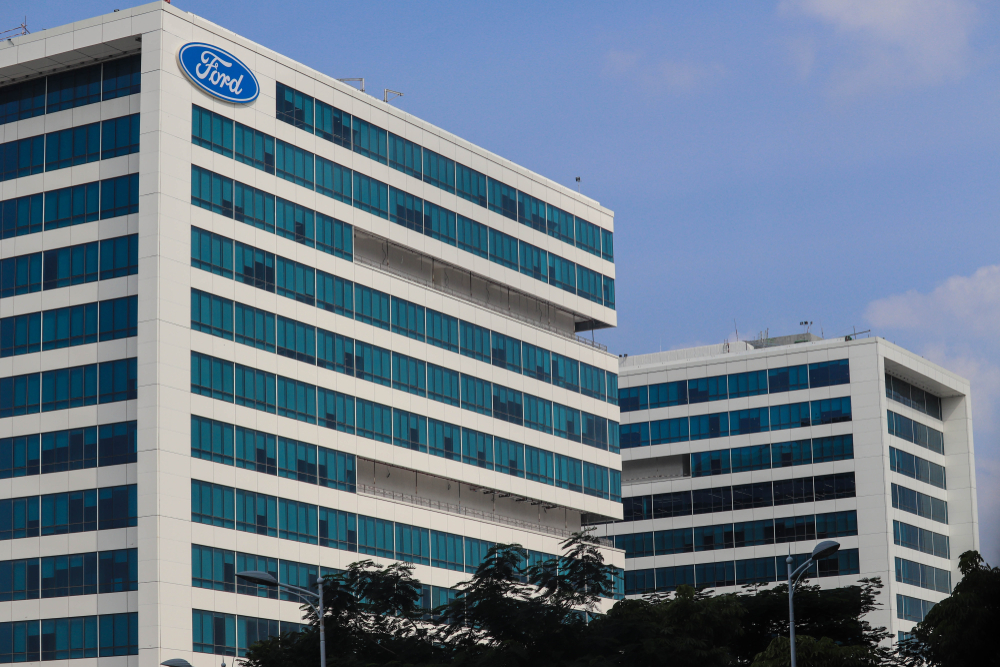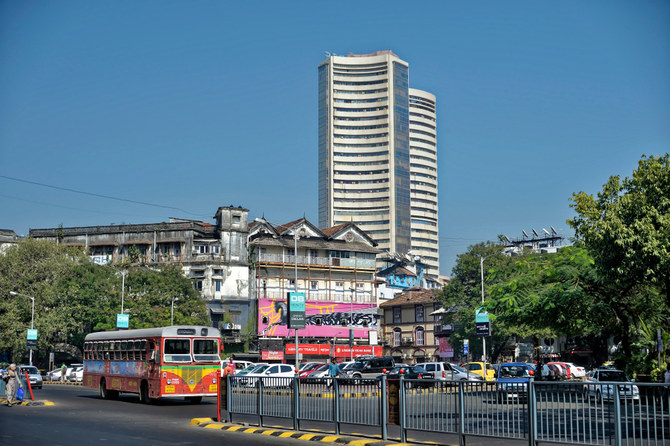MUMBAI: Indian shares lost more than 2 percent on Thursday and the rupee hit an all-time low, as investors shunned riskier assets in the run-up to inflation data which could bolster fears of more rate hikes.
The NSE Nifty 50 index dropped 2.22 percent to close at 15,808 and the S&P BSE Sensex fell 2.14 percent to 52,930.31. Both the indexes logged their fifth straight session of losses and hit a two-month low.
The Indian rupee plunged to a record low for a second time this week, hitting 77.63 against the dollar. It settled at 77.5025.
New head for Air India

Tata Sons completed its purchase of the previously state-owned Indian national carrier in January. (Shutterstock)
Air India’s new owner Tata Sons said on Thursday it would appoint Campbell Wilson, the head of Singapore Airlines’ budget carrier Scoot, as its chief executive, subject to regulatory approvals.
New Zealand-born Wilson, 50, will step down from his current role on June 15, Singapore Airlines said.
Tata Sons completed its purchase of the previously state-owned Indian national carrier in January and has been searching for an executive to lead a major turnaround plan.
Wilson’s appointment comes after Turkey’s Ilker Ayci decided not to take on the role of chief executive of Air India after the announcement of his appointment spurred opposition in India over his previous political links.
Air India Chairman N. Chandrasekaran said he was delighted to welcome Wilson, describing him as an industry veteran who had worked in key global markets across many functions.
“Air India is at the cusp of an exciting journey to become one of the best airlines in the world, offering world-class products and services with a distinct customer experience that reflects Indian warmth and hospitality,” Wilson said in a statement.
“I am excited to join Air India and Tata colleagues in the mission of realizing that ambition.”
Ford makes U-turn, shelves plans for EV exports from India

The US carmaker said in February it would manufacture EVs in India. (Shutterstock)
Ford Motor Co. said on Thursday it had dropped plans to make electric vehicles in India for exports, while it explores options for its two factories in the country that stopped production last year.
The US carmaker said in February it would manufacture EVs in India and also got approval for the Indian government’s $3.5-billion production-linked incentive scheme for making clean-fuel vehicles.
“After careful review, we have decided to no longer pursue EV manufacturing for exports from any of the Indian plants,” a spokesperson for Ford India said in an email.
The company did not offer details on its U-turn, while adding that its previously announced business restructuring continues as planned, including exploring alternatives for its manufacturing facilities in India.
“We continue to work closely with unions and other stakeholders to deliver an equitable and balanced plan to mitigate the impacts of restructuring,” the spokesperson added.
India's economic growth likely to slow down
India’s economic growth rate is likely to slow if the central bank hikes interest rates, Finance Secretary TV Somanathan told CNBC TV18 on Thursday.
India’s central bank is likely to raise its inflation projection for the current fiscal year at its June monetary policy meeting and will consider more interest rate hikes, a source said on Wednesday.
The central bank hiked its repo rate by 40 basis points to 4.40 percent following an emergency meeting earlier this month.
(With input from Reuters)


























